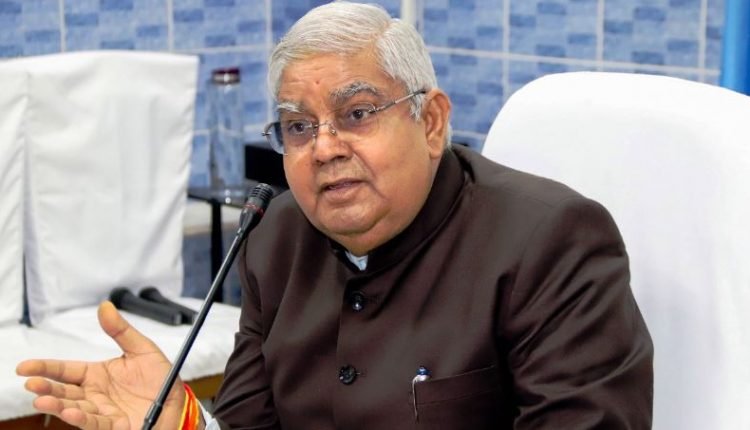Dhankhar Slams Silence and Inaction in Burnt Cash Case at Judge’s Residence, Questions Lack of FIR and Legal Process
New Delhi, April 17 – Vice President of India Jagdeep Dhankhar raised serious concerns on Thursday over the absence of an FIR in the controversial case involving the discovery of bundles of burnt currency notes at the residence of a sitting High Court judge. In a sharp and unflinching address, Dhankhar questioned whether certain individuals or institutions have placed themselves “beyond the reach of the law,” highlighting what he described as a troubling deviation from constitutional principles and the rule of law.
The controversy erupted after the Supreme Court ordered an internal inquiry into the alleged recovery of half-burnt wads of cash from the Delhi residence of Justice Yashwant Varma, following a fire on the night of Holi, March 14. Since then, Justice Varma has been repatriated to the Allahabad High Court, his parent cadre. However, despite the explosive nature of the incident, no formal police complaint has been registered—a fact that has deeply alarmed many, including the Vice President.
Speaking to a gathering of Rajya Sabha interns, Dhankhar did not mince words. “Had this incident occurred in the home of an ordinary citizen, the investigation would have been swift—akin to an electronic rocket. But in this case, not even a cattle cart has been set in motion,” he said, drawing attention to the glaring delay and apparent reluctance in taking legal action.
While a three-member judicial panel has been formed to probe the matter internally, Dhankhar questioned the very legitimacy and effectiveness of such a committee. “This committee has not been constituted under any constitutional or legal provision. Its role is limited to making recommendations, which may or may not translate into any meaningful action,” he said. He further emphasized that in the current legal framework, the only enforceable measure against a judge is removal by Parliament, following a rigorous impeachment process.
Calling for transparency and accountability, the Vice President remarked, “It’s been over a month now. Even if there are skeletons in the cupboard, or worms in the can, it’s time to break it open. The nation deserves to know the truth. The lid must come off, and the contents must be brought into the public domain. That is how institutional cleansing happens.”
Dhankhar expressed dismay that the incident remained hidden from public knowledge for seven days, suggesting that such a delay in disclosure is both inexcusable and suspicious. “In any other scenario, there would have been swift action. But here, silence prevailed. Why?” he asked.
He pointed out that despite the Supreme Court’s confirmation of the incident, and despite the serious implications it carries for judicial credibility, no FIR has been filed and no formal investigation initiated. “In our country, the law mandates that every cognizable offence must be reported to the police. Failure to do so is itself a punishable offence. Then why has no FIR been lodged in this case?” he asked pointedly.
Dhankhar explained that an FIR can be registered against anyone—be it a layperson, a minister, or even a constitutional authority like the Vice President. “I am not immune. No one is. Except for the President and the Governors, who enjoy specific constitutional protections, no one else is above the law. So, how is it that judges now appear to belong to a category that has acquired de facto immunity from scrutiny?” he questioned.
He also recalled a past instance where the Lokpal claimed jurisdiction to investigate allegations of corruption against High Court judges, but the move was blocked by the Supreme Court on grounds of protecting judicial independence. While acknowledging the need for an independent judiciary, Dhankhar cautioned against misinterpreting this independence as absolute immunity.
“Judicial independence is not a shield to prevent inquiries, investigations, or accountability. Rather, institutions flourish in environments where transparency prevails. The quickest way to erode public trust in an institution is to offer blanket protection from scrutiny,” he warned.




